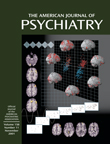Olanzapine Augmentation for Trichotillomania
Ms. A was a 47-year-old Caucasian woman with a psychiatric history significant for trichotillomania, dysthymia, and past alcohol abuse whose trichotillomania had failed to respond to treatment with fluoxetine, 60 mg/day, and citalopram, 60 mg/day. She found that olanzapine, 7.5 mg b.i.d., in addition to citalopram helped reduce her hair pulling dramatically, over citalopram alone, to a point at which she was finally able to have her first haircut in over 10 years. She has had a good response to this treatment for almost a year.Ms. B was a 33-year-old Caucasian woman with a psychiatric history significant for major depression, obsessive-compulsive disorder (OCD), and 19 years of trichotillomania whose hair pulling failed to respond to treatment with paroxetine, 60 mg/day; she obtained partial response when taking citalopram, 80 mg/day. She described ongoing and continual dramatic improvement when taking 5 mg/day of olanzapine to augment treatment with citalopram. She was still seeing benefit from this therapy after 6 months.Ms. C was a 45-year-old Caucasian woman with a psychiatric history that was significant for bipolar II disorder, alcohol dependence (in remission), and trichotillomania whose mood disorder had responded to treatment with carbamazepine but whose trichotillomania had failed to respond to a regimen of 40 mg b.i.d. of fluoxetine, 50 mg of fluvoxamine at 6 p.m. and 150 mg at bedtime, 40 mg/day of paroxetine, 100 mg b.i.d. of sertraline, and 80 mg of citalopram at bedtime. Olanzapine augmentation, 1.25 mg/day, provided an enhanced mood benefit but had no impact on Ms. C’s trichotillomania. She could not tolerate higher doses of olanzapine.Ms. D was a 49-year-old Caucasian woman with a psychiatric history significant for dysthymia, OCD, and trichotillomania who had medication intolerance or insufficient response to the trichotillomania portion of her illness when taking 75 mg b.i.d. of venlafaxine, 50 mg/day of paroxetine, 50 mg b.i.d. of sertraline, 40 mg b.i.d. of fluoxetine, 100 mg b.i.d. of fluvoxamine, and 60 mg/day of citalopram; clonazepam was prescribed at a dose of 0.5 mg every 6 hours on an as-needed basis. Ms. D claimed profound enhanced control of her hair pulling with olanzapine augmentation at a dose of 2.5 mg at bedtime along with citalopram, 50 mg at bedtime. She stated that this was the greatest control she had felt “in 10 years.”
References
Information & Authors
Information
Published In
History
Authors
Metrics & Citations
Metrics
Citations
Export Citations
If you have the appropriate software installed, you can download article citation data to the citation manager of your choice. Simply select your manager software from the list below and click Download.
For more information or tips please see 'Downloading to a citation manager' in the Help menu.
View Options
View options
PDF/EPUB
View PDF/EPUBLogin options
Already a subscriber? Access your subscription through your login credentials or your institution for full access to this article.
Personal login Institutional Login Open Athens loginNot a subscriber?
PsychiatryOnline subscription options offer access to the DSM-5-TR® library, books, journals, CME, and patient resources. This all-in-one virtual library provides psychiatrists and mental health professionals with key resources for diagnosis, treatment, research, and professional development.
Need more help? PsychiatryOnline Customer Service may be reached by emailing [email protected] or by calling 800-368-5777 (in the U.S.) or 703-907-7322 (outside the U.S.).

